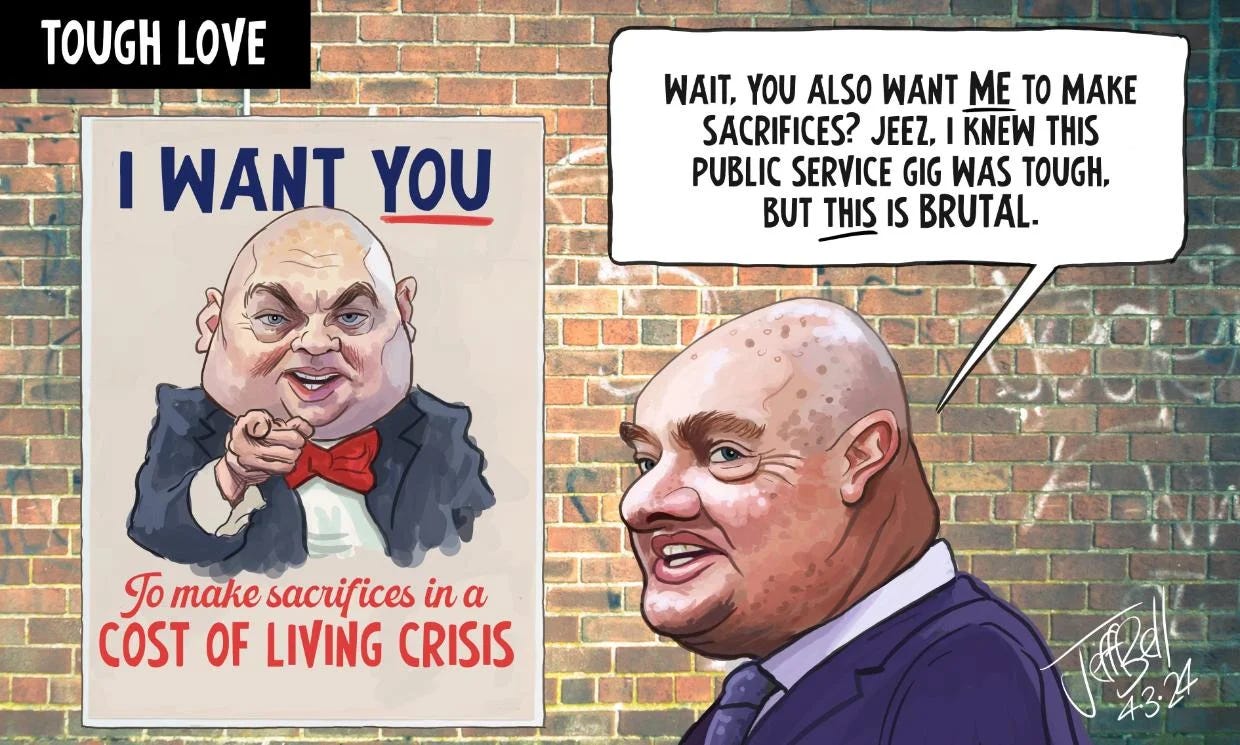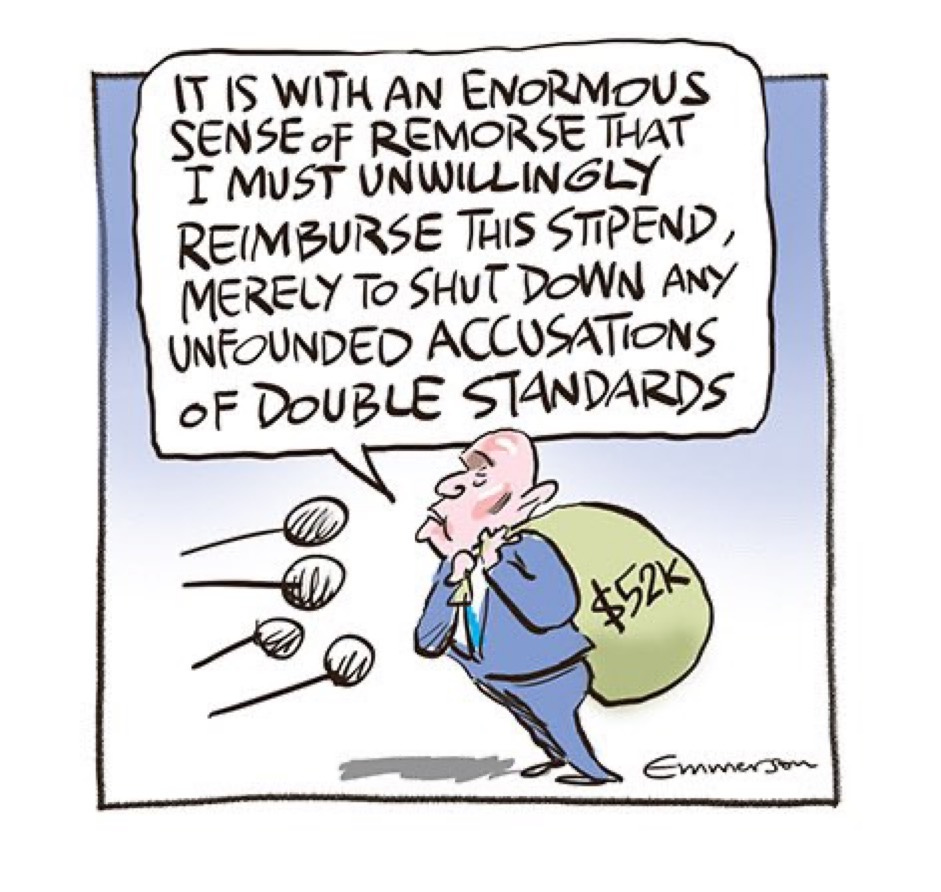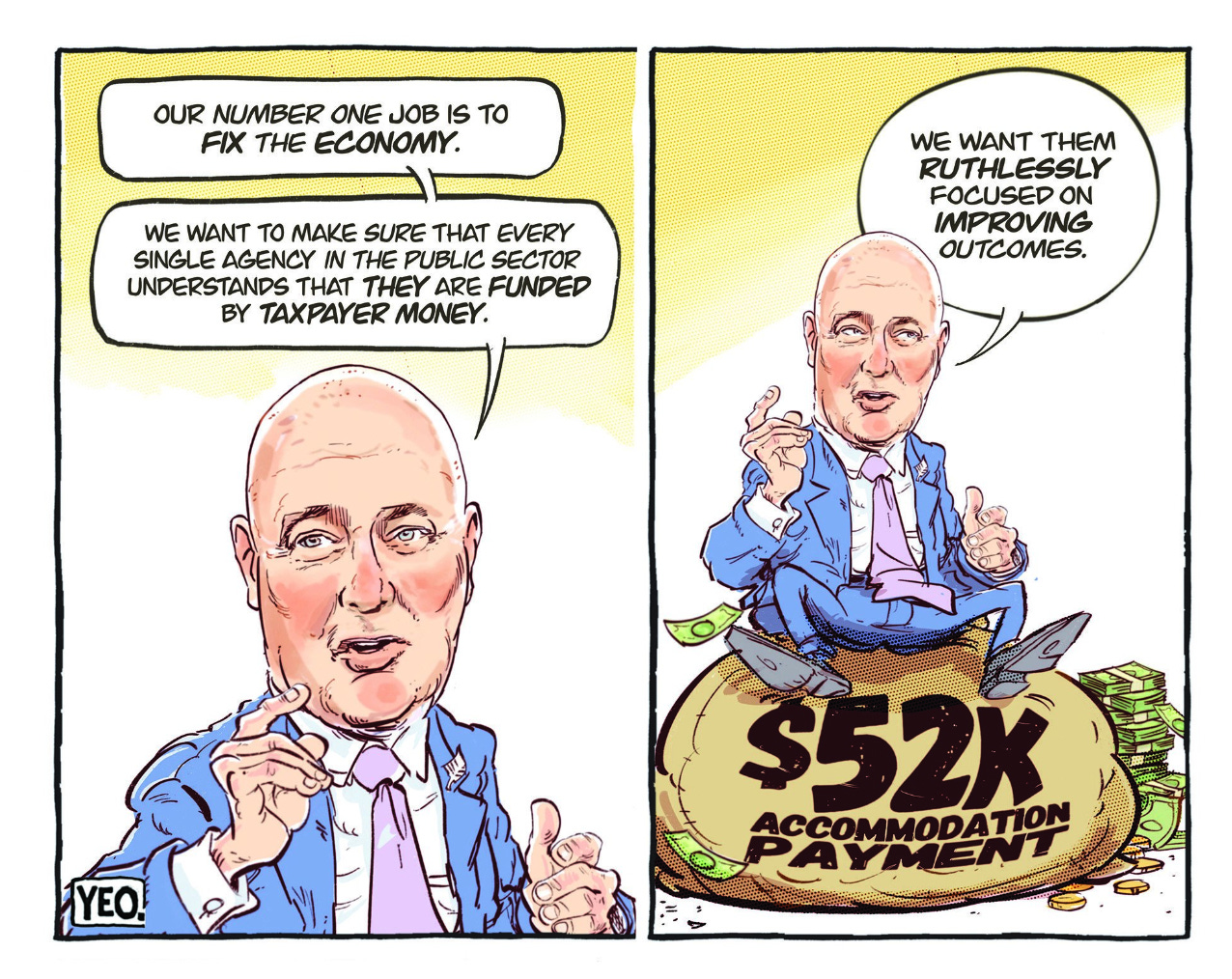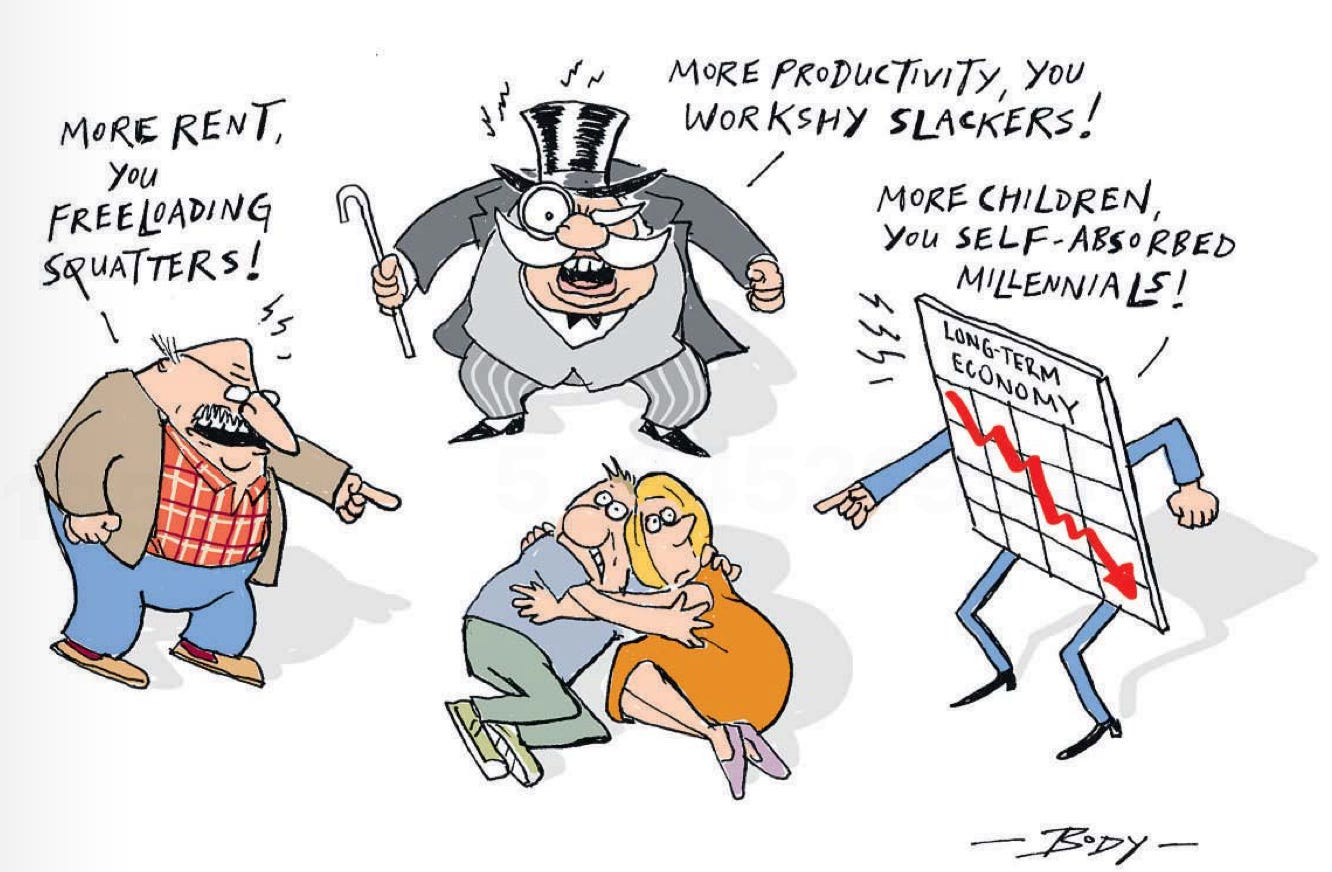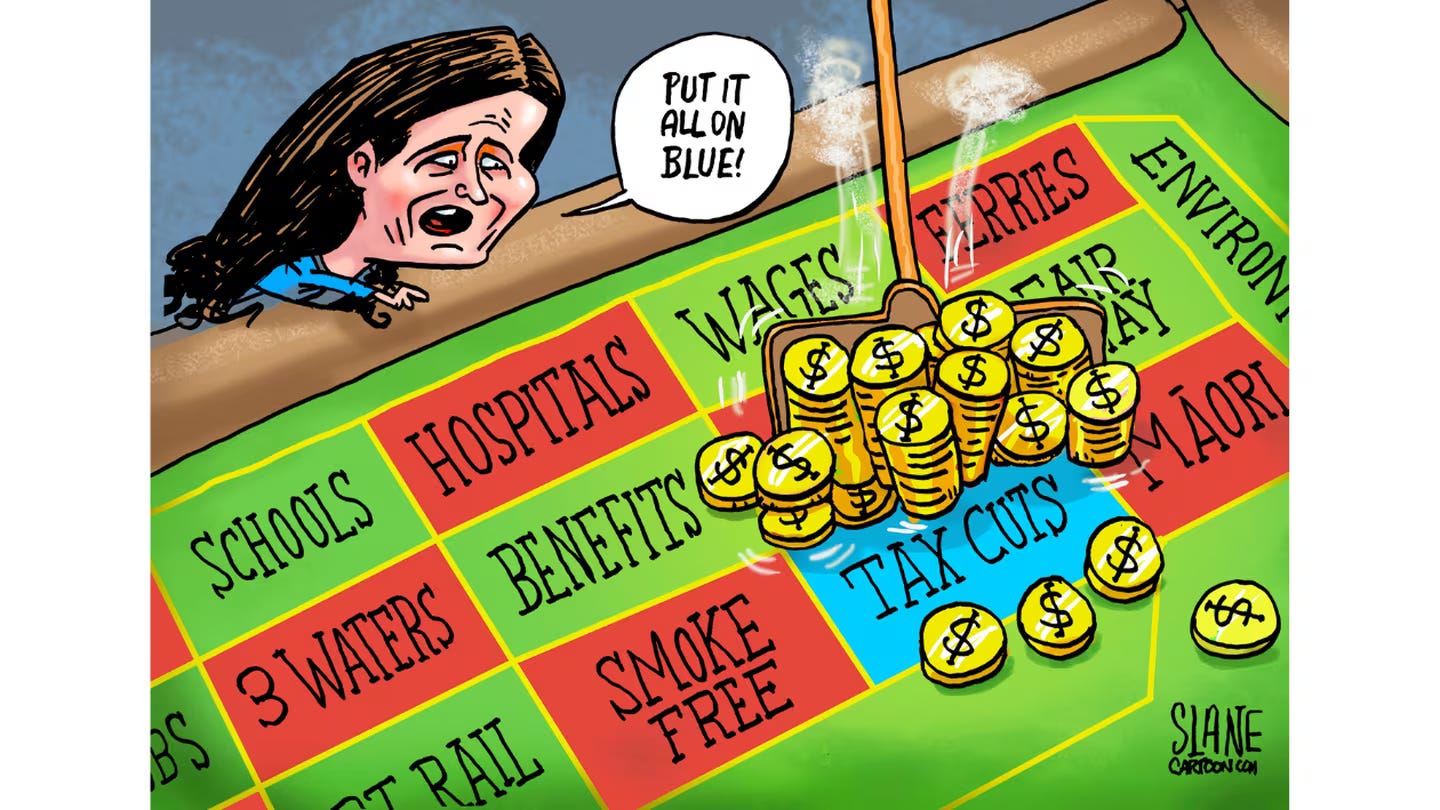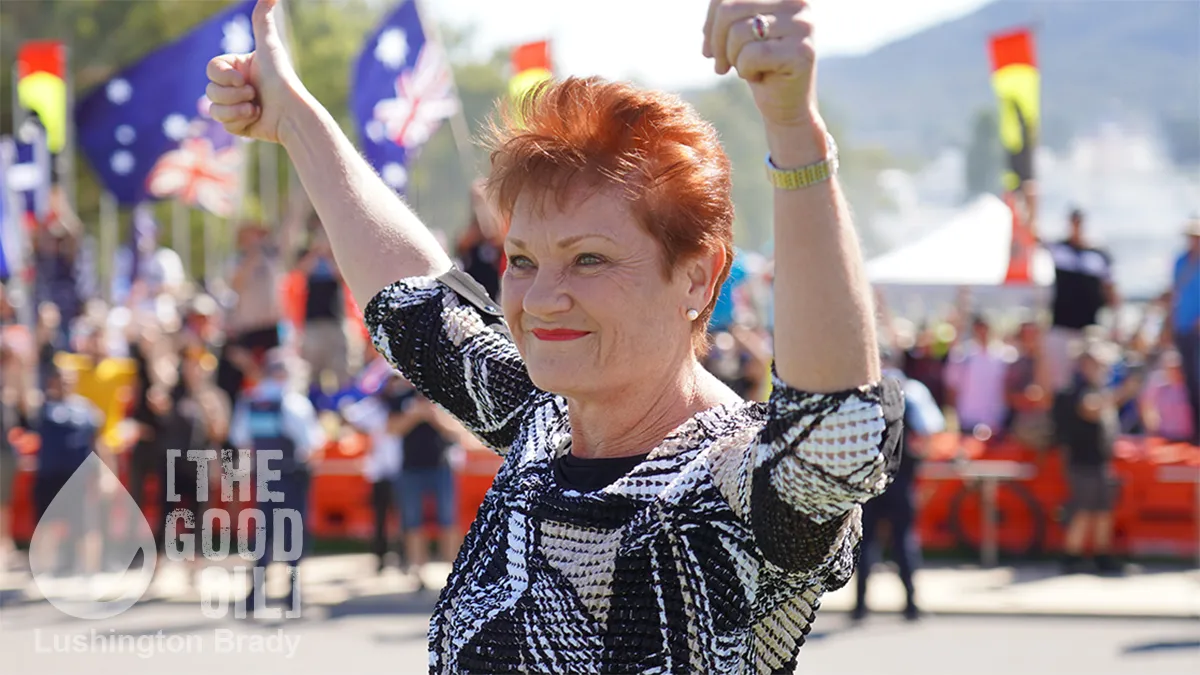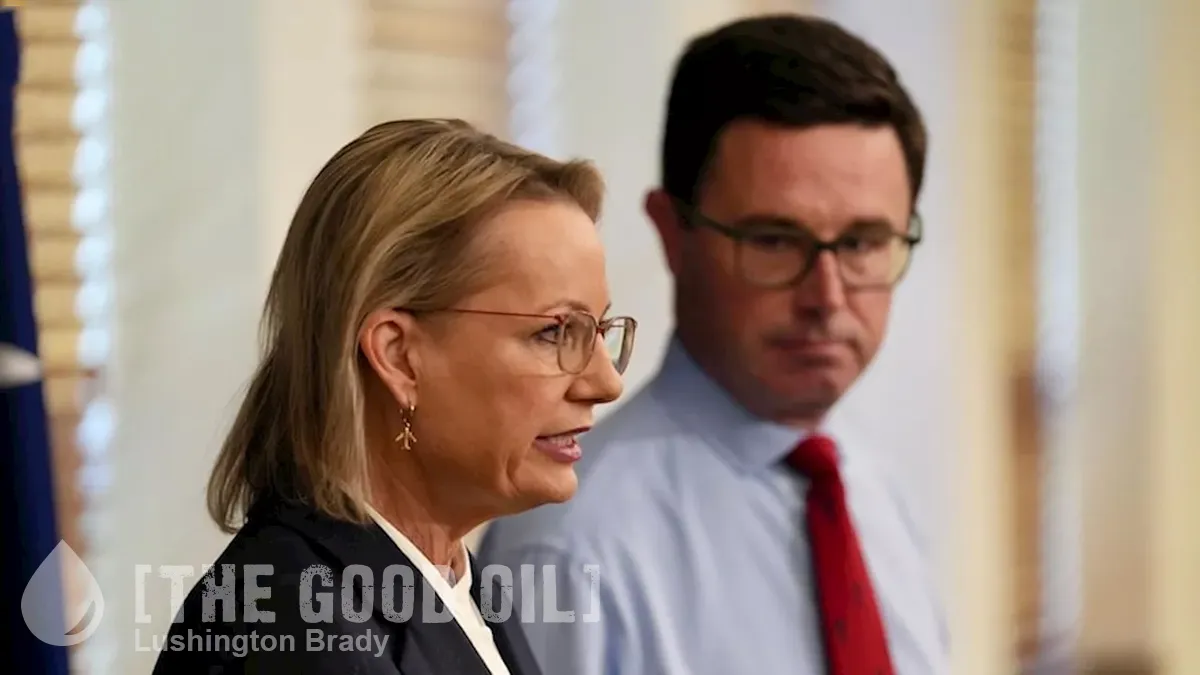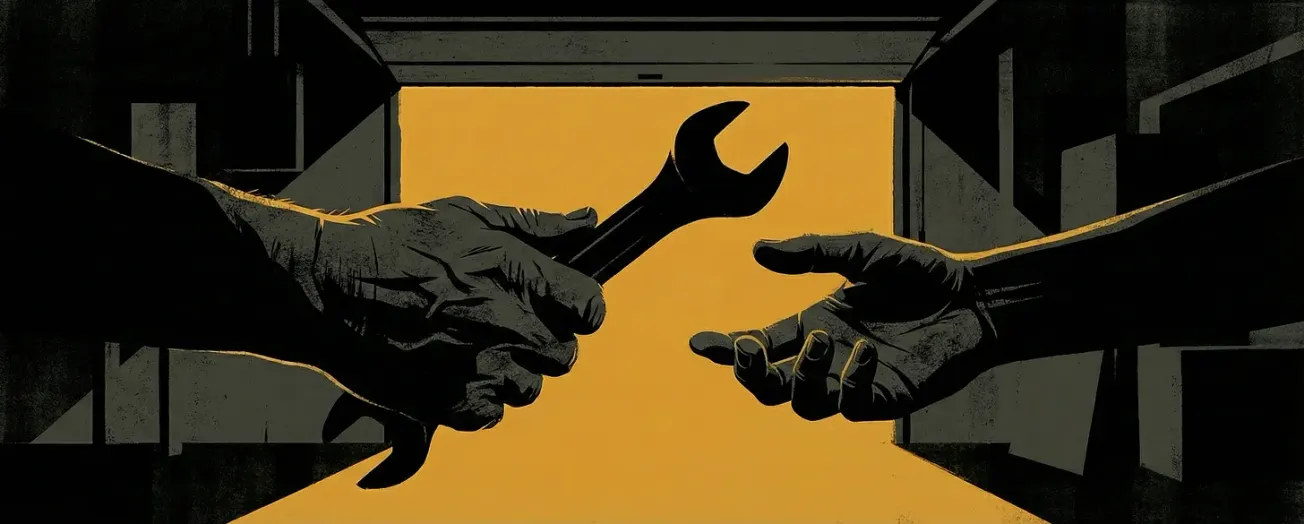Table of Contents
Bryce Edwards
I am Political Analyst in Residence at Victoria University of Wellington, where I run the Democracy Project, and am a full-time researcher in the School of Government
When the First Labour Government came into office in 1935, the new Prime Minister Michael Joseph Savage was determined not to live a bourgeois, extravagant lifestyle. Being a representative of workers meant to him that he shouldn’t just take on the material comforts of the ruling class once he was elected to represent those workers. Hence, he refused to live in Premier House on Tinakori Road, near Parliament.
Savage regarded such a mansion as inappropriate for any politician, let alone one representing the proletariat. The spacious house and gardens were apparently too opulent, and he thus believed it was against socialist principles to occupy such an ostentatious home. Instead, Savage boarded with friends and purchased a bungalow in the suburb of Northland.
Premier House as a dental clinic
Savage directed that Premier House be converted into a large dental clinic for children, as part of his government’s health programme and welfare state. After that, the house was used as a crèche and then left empty for decades. As PM, Robert Muldoon lived in another government-owned house in Lower Hutt, and then David Lange chose to live in a small flat opposite Parliament, on Hill St.
But a decision was made by Lange’s Fourth Labour Government to restore Premier House at great expense. It was then occupied by Lange’s successor, Geoffrey Palmer.
Since then, prime ministers of both sides of the spectrum have lived there, largely without any real criticisms. Savage’s socialist critique of elite living was out of fashion.
Yet to avoid accusations of being out of touch and removed from the realities of the public, the various inhabitants have been careful not to spend money upgrading and maintaining the buildings. This has led to a situation in which the place has been run down, and in need of a huge investment.
Neglect of Premier House by parsimonious PMs
As Prime Minister, Jacinda Ardern knew of the need to continue with at least the appearance of parsimonious spending on politician accommodation. Like other PMs, she didn’t want to run afoul of any Savage-like notions of politicians treating themselves to luxury at the public’s expense.
However, Ardern was also well aware of the neglected state of Premier House, complaining of many water leaks and possums in the walls and roof. Hence, she established the “Premier House Board” to evaluate the health of the property and recommend what should be done to upgrade it. An attempt was made to find a bipartisan solution in which at least Labour and National could quietly agree to put aside the politicking to allow the necessary upgrades.
This all came after an acknowledgement that such Parliamentary manoeuvring had meant no government felt comfortable addressing the declining state of the building. The political editor of Stuff, Luke Malpass, says: “The decades of neglect have clearly come from a lack of leadership, political expediency, buck-passing, from a number of prime ministers spanning four separate decades” – see: How decades of buck-passing left the PM’s pad in disrepair (paywalled)
The Premier House Board report was handed first to Chris Hipkins last year, and then to incoming Prime Minister Christopher Luxon. And although it hasn’t been fully released, media reports from the last week say that a price tag of about $30m has been attached to the recommended upgrades. And the descriptions of the house by officials are rather condemning, saying it is “below current building standards” and “only partially meets building and residential tenancy requirements and does not suit modern living requirements”.
This is well covered by the Herald’s Claire Trevett, who says the report “catalogues a list of problems – from 30-year-old fittings and furnishings to a lack of insulation and windows that were not adequately sealed so let draughts in” and it raises “red flags about its condition and suitability as a home for the Prime Minister” – see: Premier House: Report into Prime Minister Chris Luxon’s apartment reveals it’s draughty, dated, uninsulated (paywalled)
According to her, the report says this about the PM’s residence: “It was commonplace for things to break. It noted the apartment was ‘uncomfortable,’ had small, poor-quality bathrooms and was badly laid out… and fell well short of the status of the Prime Minister and of comparable residences in other countries.”
Others have also commented on the poor state – Grant Robertson said recently that the house had “a slight 80s motel vibe to it”, and “it is in severe need of an upgrade upstairs there … it’s not up to scratch”. Heritage NZ has also described it as being in a “dishevelled” state.
It’s not surprising that Luxon has decided to stay in his own home – in the Kate Sheppard Apartment building, opposite Parliament. Luxon explained all this three weeks ago, with a spokesperson stating that the PM was going to deal with the Premier House Board’s advice first: “The report suggests Premier House requires a significant amount of work so the prime minister will consider that before making any decisions around residing there” – see Thomas Manch’s Luxon yet to move into Premier House as he considers ‘significant’ renovations (paywalled)
The article also explained that, as PM, Luxon was entitled to an upgraded housing allowance: “He has previously claimed an annual $31,000 accommodation allowance while living in his Wellington home as an MP and now, as prime minister, he can claim up to $52,000 a year if he chooses not to relocate to the Thorndon residence for prime ministers.”
A Savage response to Luxon’s entitlement
On Thursday last week, the official work spending figures of all politicians for the last three months of 2023 were released. This showed that MPs and ministers had spent over $2.3m on accommodation, flights, and other travel between October and December. This is best covered in Felix Desmarais’ article: Expenses for MPs and Ministers revealed – who spent what?
Then on Friday Prime Minister Luxon admitted that he had filed a late return, and so although the officially-released figures don’t reflect it, he had decided to claim the accommodation allowance. While visiting Queenstown, Luxon gave a stand-up press conference in which he fielded journalists’ questions over why he was claiming the allowance when he already owned the apartment he was living in, mortgage-free. His answers boiled down to this statement that he was “entitled to the entitlement”, which went down terribly. As one commentator quipped, it looked like Luxon had come down with “chronic entitle-it-is”.
Within hours, Luxon had announced a U-turn on Newstalk ZB, saying that he had come away from his press conference thinking “Wow, people are pretty fixated on the allowance… what’s going on?”. Luxons says he listened to talkback radio and decided he would get rid of this “distraction” by paying back the $13,000 he’d recently been paid, and would no longer claim the allowance – see Adam Pearse’s Christopher Luxon won’t claim $52k accommodation allowance, to repay $13,000 amid Labour claims of ‘hypocrisy’
Commentators and activists were universally united in condemning that Luxon had taken the allowance in the first place. Even the rightwing Taxpayers’ Union spoke out strongly on the issue.
Herald political editor Claire Trevett explained that it was Luxon’s austerity policies and claims of economic parsimoniousness that meant he shouldn’t have claimed the allowance. Pointing to the cuts to the public service and beneficiary entitlements, Trevett said that taking the $52,000 “might be defensible if he was not a Prime Minister who was also a self-proclaimed defender of the taxpayers’ dollar, nipping and tucking away at spending in every other corner of government” – see: Christopher Luxon’s short-lived attempt to claim taxpayer funded accommodation allowance was never going to be defensible (paywalled)
TVNZ’s Maiki Sherman asserted on Friday that Luxon had done the right thing, after initially doing the wrong thing, explaining: “New Zealanders who are doing it tough under the crushing weight of the cost-of-living crisis might have felt they had every right to feel ripped off. At every turn the prime minister has made a point to talk about the pressure everyday New Zealanders are under and is at pains to say the Government is fixated on sorting it” – see: How Luxon learned a tough political lesson
Sunday Star Times editor Tracy Watkins said that Luxon should never have claimed the allowance, because he should simply have chosen to live at Premier House, just as other New Zealanders have to live in uncomfortable homes: “As PM he had the choice of living in a house that may not be all that comfortable, but which let’s face it is probably in better condition than most rentals. He chose not to live in that house but another one that he preferred. He had choices that a lot of other people don’t have, and he expected taxpayers to carry the cost for that choice. That’s why it’s unfair” – see: Why the PM’s accommodation allowance failed the fairness test (paywalled)
The same newspaper also published Vernon Small (a former advisor to David Parker), who said that Luxon had been extremely tone-deaf, especially given his wealth and ownership of seven properties – see: Perk blinds MPs to political risk (paywalled)
But it was Luxon’s austerity measures that were the biggest problem for the PM claiming the allowance: “It also looks like hypocrisy – restraint for others, but not for me – especially when set against cost-cutting (and inevitable job losses) in the public sector, the promise to get the most from every tax dollar and the thundering pledge to no longer treat taxpayers as a ‘bottomless ATM’. Then there is his government’s ‘tough love’ on the work-ready, and the move to curb future benefit increases.”
Similar points were made by Labour leader Chris Hipkins, who stressed that Premier House was good enough for former prime ministers and that Luxon was being rather precious and wasteful.
Should other politicians stop receiving the allowance, and pay it back?
Given the consensus that Luxon was wrong to take the accommodation allowance because he already owns an apartment in Wellington, it raises the question of whether other politicians in the same situation should do likewise. For a long time, politicians from all political parties have bought Wellington properties and claimed the out-of-Wellington allowance.
During the last Government, there were four ministers in the same situation as Luxon, living in their own homes in Wellington and claiming the ministerial accommodation allowance, which is up to $45,000 a year. These were Willie Jackson, Jan Tinetti, Deborah Russell and Duncan Webb. All these MPs are likely to be in the same situation this year, but on a lower accommodation allowance.
In addition, last year four other Labour MPs were living in their Wellington properties while claiming the allowance. These were: Jenny Salesa, Arena Williams, Jamie Strange and Sarah Pallet. This was all covered in October in the Post by Andrea Vance – see: More than 20 MPs rent back their own homes at the taxpayer’s expense (paywalled)
Vance detailed MPs from other parties too: “Twelve National Party MPs, including leader Christopher Luxon, do the same. They are: Andrew Bayly; Gerry Brownlee; Judith Collins; Jacqui Dean; Barbara Kuriger; Melissa Lee; Ian McKelvie; Mark Mitchell; Simon O’Connor; Stuart Smith; Louise Upston and Michael Woodhouse. ACT’s Simon Court also claims the allowance and owns property in the Capital”.
Again in 2024, according to Stuff’s Bridie Witton, there are twenty MPs with second-homes in Wellington which “taxpayers are helping to pay their mortgages” – see: Prime Minister Christopher Luxon saga raises questions about politician entitlements
She also points out that many MPs are claiming taxpayer funds for their electoral offices, which are often owned by the politicians themselves – which means that they are the landlords of their own state-funded rentals. For example, in the case of the PM: “Luxon was also claiming $3750 in taxpayer cash a month to rent his electorate office, based in Northpark, in Auckland financial disclosures published in August and covering the year to June, show. Luxon owns the property, which is now valued at $1.52million.”
Although such conflicts of interest must be declared, Parliament continues to allow these rental arrangements, and all parties do it. And Vernon Small argued that both arrangements for politicians – living in their own Wellington houses, and renting their own electorate offices should not be allowed, even via trusts and superannuation funds: “It would be tidier and more transparent if they instead rented their Wellington digs or electorate offices from a third party, though the net effect is probably neutral for taxpayers. (For the benefit of Labour and the Greens, a political party or private superannuation fund are not third parties.) In the interests of public confidence, it is a change our parliamentarians should have made long ago.”
Rising discontent about politicians rorting the system
In the last two decades, there has been a growing global discontent about politicians being overpaid and rorting the system. This phenomenon really kicked off after the 2008 UK Parliamentary Expenses scandal. More scrutiny is now applied everywhere to the cost of politicians. And when Covid hit in 2020, here the Labour Government made a popular move in (temporarily) cutting ministerial salaries and encouraging top public servants to do the same.
In 2024 there’s now an increasing expectation of belt-tightening for the politicians. Part of this is due to the anti-political atmosphere in which elites are challenged and scrutinised more. But it’s also an immediate reaction to the cost-of-living crisis and the austerity that the new Government is pushing on others, especially in the public sector.
The consensus that quickly pressured Luxon to U-turn on Friday was extraordinary. There seemed to be no one willing to defend politicians’ right to their generous allowances. It was almost as if the spirit of Michael Joseph Savage had been revived.
Should politicians’ pay be cut?
That same socialist-like intolerance of elite self-aggrandisement might well continue to plague the new Government and Parliament whenever their perks and extravagance are out of line with any austerity being imposed on the public.
They might even find that there’s a public appetite for politicians to tighten their own generous salaries. At the moment the Remuneration Authority is undertaking their review of how much politicians should get paid. Their recommendations will be delivered next month, mere weeks before Nicola Willis presents her austerity Budget.
Expect to see some campaigning for pay cuts. The Taxpayer Union has recently said: “New Zealand’s MPs are already among the most highly paid in the world, and when you add in their additional perks and spending allowances, all of which are not subject to the Official Information Act, taxpayers aren’t getting a fair deal.”
The last time a major revamp of politician remuneration took place was in the 1980s. Previously politicians were paid more in line with the general public – a backbench MP earned roughly the same amount as an experienced teacher. Now MPs earn more than twice that ratio. And many politicians earn much more because of the other responsibilities they take on in Parliament and Government. With a basic salary of $460K, the prime minister earns about nine times the average wage.
The Remuneration Authority’s review might be expected to give politicians even higher pay, in line with escalating CEO pay. However, part of the Authority’s remit is to consider the economic conditions. They will need to therefore take into account the cost-of-living crisis that the public is experiencing as well as the coming austerity cuts from the new government. This should mean that politicians’ pay is cut.
But if bigger salaries for politicians do come about from the review – especially at the same time that public services are being slashed – then Parliament might expect fireworks from an angry public.
It is also notable that Ministerial Services (the agency in charge of the Beehive administration) has recently briefed the new Government that entitlements for ministers may have to be trimmed to achieve the required 6.5 per cent cuts demanded of the agency.
Housing allowances and other perks will also continue to be controversial. In the past, the only real scandals have been when ministers from Wellington have claimed accommodation or allowances that are only meant for those from outside the capital. This happened in 2001 when Labour and Alliance ministers Marian Hobbs and Phillida Bunkle claimed housing allowances even though they owned their properties in Wellington Central and had been candidates and voters in that electorate.
Similarly, in 2009 then Finance Minister Bill English had become a list MP and moved his family to live in Wellington, but illegitimately claimed a ministerial housing allowance based on his belief that he still represented constituents in his old Dipton electorate of Clutha-Southland. In that case, a TVNZ poll at the time showed that 62 per cent of the public thought English’s entitlement issue had damaged his credibility.
What should happen next to Premier House?
The new Government has a headache about whether to spend the estimated $30m required to do up Premier House. The Opposition has now made it clear they will politicise anything except the most modest proposal for maintenance. And Luxon himself has suggested that they might just sell the property off.
Some commentators are telling National to just move ahead with the restoration. For example, Stuff’s Luke Malpass is calling for the proper investment to be made, saying “New Zealand is not a two-bit poor country and whoever the prime minister is should have a decent residence where various dignitaries and New Zealanders can be hosted”. He tells Luxon to show some leadership and spend the necessary money: “Simply wimping out and not investing in the House, or selling it to scratch an urgent political itch, would also be far from the leadership Luxon promised when coming into the premiership.”
Or else Luxon could ask himself, “What would Michael Joseph Savage do?”. Looking at the state of the public health system, or even the dire dental system, Luxon might be best to revert Premier House into what it was in the 1930s – a building that served the public rather than politicians.
Dr Bryce Edwards
Political Analyst in Residence, Director of the Democracy Project, School of Government, Victoria University of Wellington
Cartoons today
